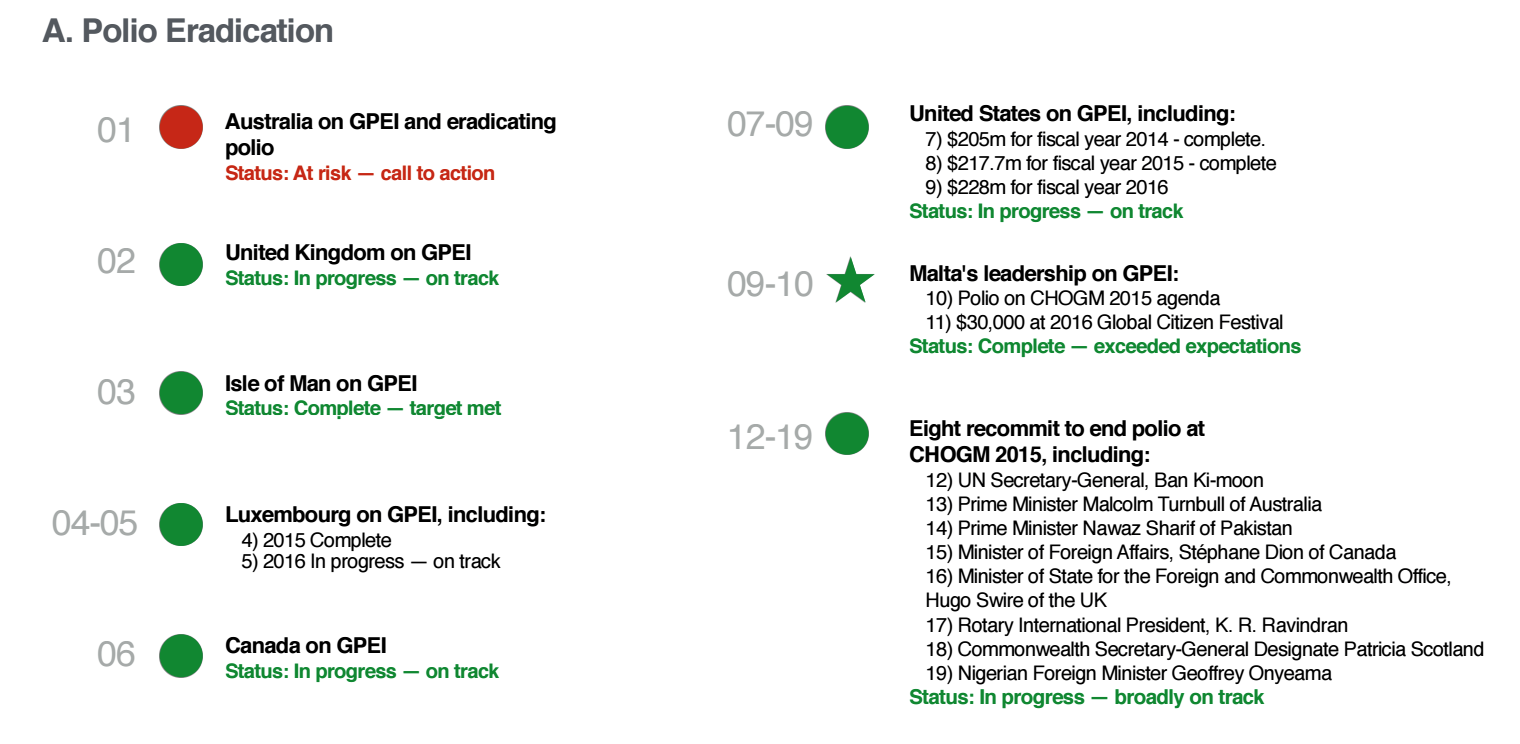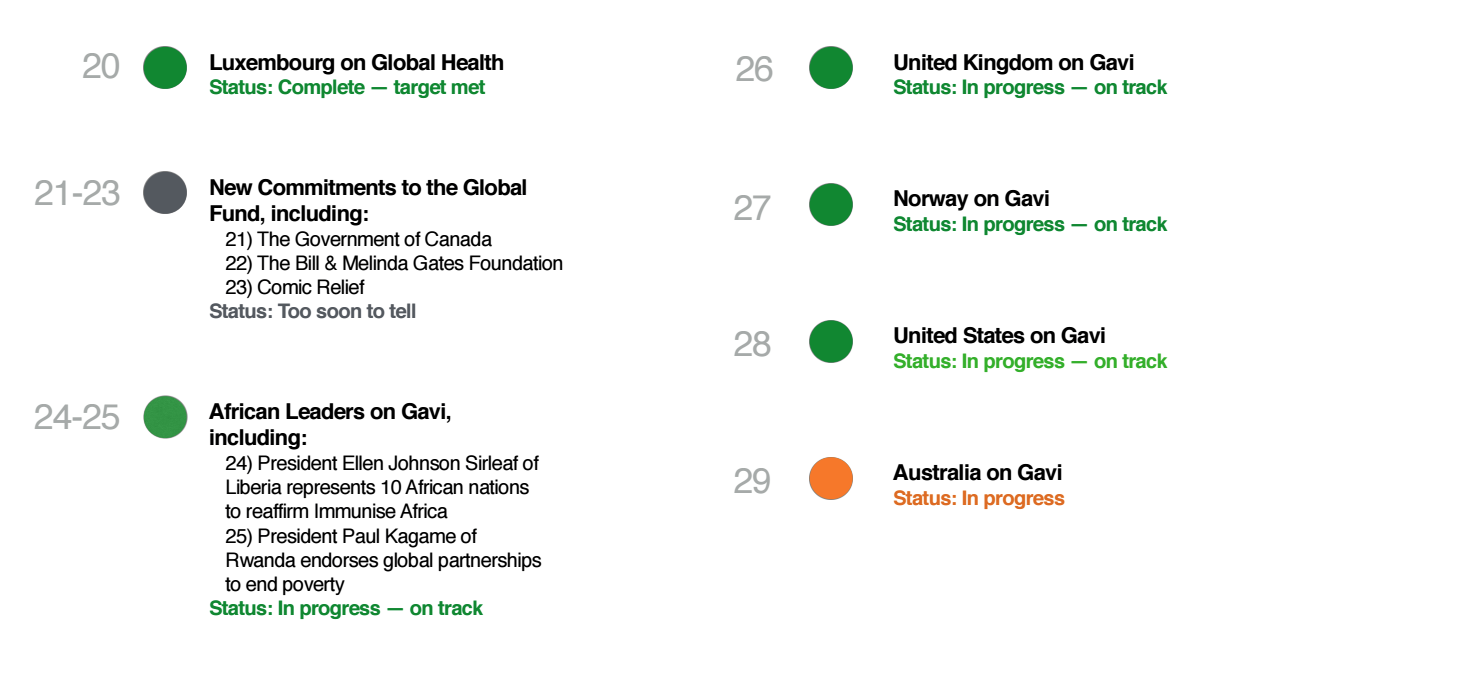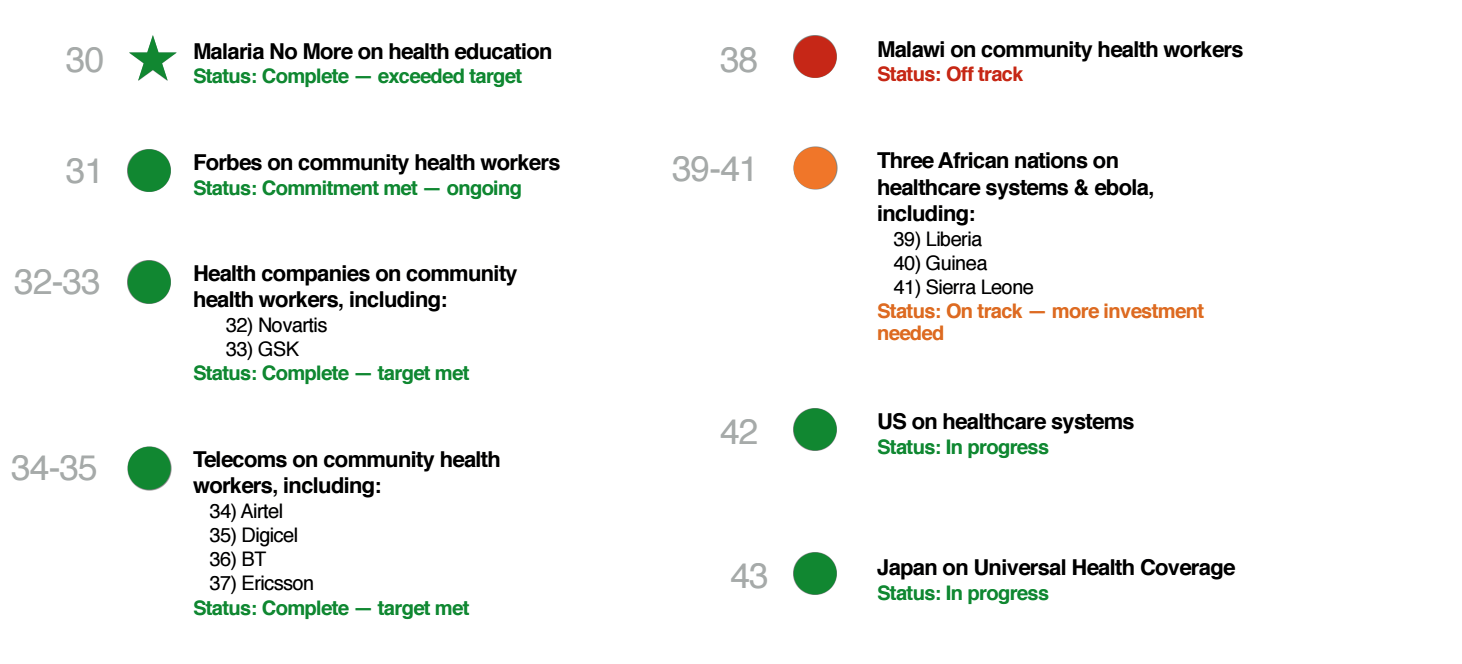Since 2011, Global Citizens have taken 1.42 million actions on global health. In response, governments and companies made 43 commitments and announcements worth over $7 billion to the world’s poorest and most vulnerable.
Global Citizen has just released an accountability report, tracking whether or not they're delivering.
In general — the answer is yes.
With 359 million lives impacted to date, we are 59.7% toward affecting 601.5 million lives by 2030.
You can read the full report here — or read on for a summary.
About the report
This is the second accountability report that we have released as follow-up to the more than 150 commitments and announcements that have made from Global Citizen platforms or following Global Citizen campaigning.
We’re always in regular contact with commitment and announcement makers, but this Accountability Report, like the first one which reviewed 25 commitments on water, sanitation, and hygiene, systematically and transparently reviews progress in a way that we think is vitally important.
For each commitment or announcement we outline what our involvement in was, what exactly was promised, and what’s happened since. And, we use a four color system to summarize progress — green for on-track or fully complete, amber for some risk, red for significant risk, and grey for too soon to tell.
Key Findings
Overall, the vast majority of commitments and announcements are on-track and working well:
34 are on-track or complete, including two that exceeded their initial commitments. For example:
Norway: In 2014, Norway committed NOK 6.25 billion to Gavi, The Vaccine Alliance. They are delivering on their promise, helping to immunize millions of children each year against deadly diseases.
Canada: In 2013, Canada committed CAN$250 million to polio eradication. They’ve paid up 74% and have just fully committed installments to 2019, helping to bring polio cases to their lowest ever levels.
4 are progressing with some risk
2 are significantly at risk, including:
Australia: Since 2011, Australia has committed AU$130 million to polio eradication. They have since lowered their pledge to AU$86 million, putting eradication at risk, front loading payments to minimize harm.
Malawi: In 2013, Malawi pledged to add 17,000 new community health workers (CHWs). Since 2013, there has been little evidence of increase, but the new government is working to mobilize funds.
3 have only just been made and so are too soon to tell.
Our campaigning in support of global health issues has been focused on supporting a number of specific initiatives:
Polio Eradication: 19 commitments and announcements

Vaccines & Disease: 10 commitments and announcements

Health Systems: 14 commitments and announcements

Taking a step back from individual commitments, we also note that key trends in global health are likely to start to affecting the ability of all commitments to be delivered going forward:
Shifts in financing patterns: less donor money, more domestic resourcing: The development of the Global Goals for Sustainable Development and the most recent strategies for the Global Fund, Gavi and GPEI all note the shifting balance in who is providing financial capital for global health. The increased contribution of domestic resources has been key to unlocking commitments from traditional donors, and we welcome the more even balance. However, we note concern at the risk of donors reducing support and reneging on commitments if domestic resources are not fully met, which would be a double-whammy for the some of the world’s poorest and most vulnerable. Global Citizen will remain vigilant in ensuring that we campaign to see the full disbursal of all committed donor money.
Political headwinds: Global health enjoyed unprecedented growth in financial and political support the last decade. That growth has stalled, and is in reverse in several donor countries where new political leadership and weak public support has left commitments vulnerable to cuts. We have already seen the consequences of this in Australia, and with new governments in the UK and soon in the USA, we are concerned of the potential for backsliding. Global Citizen will continue to work to demonstrate support for strong investments in global health and development, and will campaign to safeguard the delivery of commitments.
Interconnectedness between vertical issue funds and systemic interventions: The global health community has been increasingly effective at communicating the life-enhancing and -saving impact of its work through vertical funds like GPEI, Gavi and Global Fund. At Global Citizen, we have been thrilled to amplify these success stories, but note with caution the attention in some donor countries and NGO materials that is emerging on the efficiency of interventions. We wholeheartedly the support to drive down costs for commodities like vaccines, but urge the community not to lose sight of the key systemic investments in people, processes and infrastructure on which the health system relies, and, in fact, needs more rather than less investment.
To find out more, you can read the full report here. And, if you've got feedback, comments or questions, be sure to let us know.